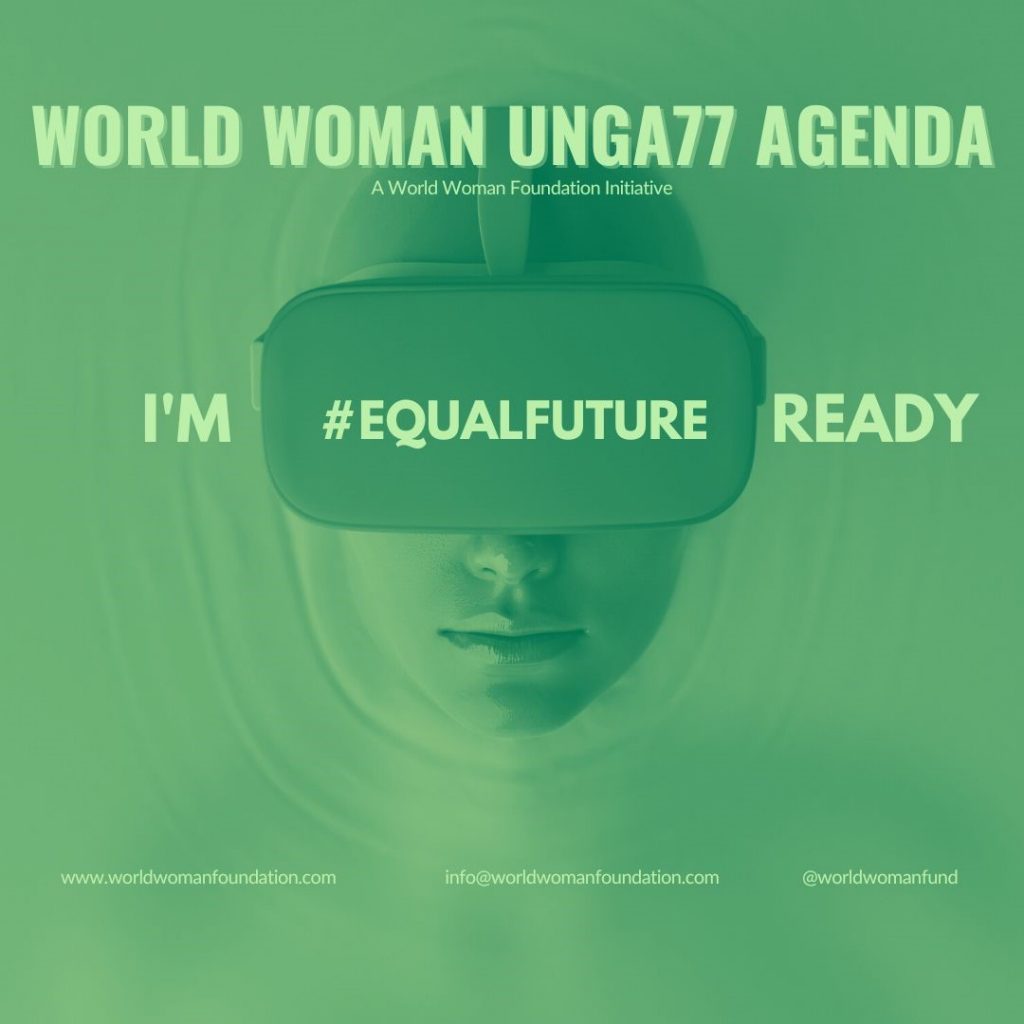
Access to modern contraception is vital to the empowerment of women and girls worldwide. There are 160 million women worldwide who do not have access and a $59bn cost to fulfilling unmet contraception needs. Even when contraception is available, cultural pressures: social norms, traditional gender stereotypes, prejudices and stigmas mean that many women do not have the choices that are available to most readers of this blog.
One session at the recent World Woman Foundation’s United Nations General Assembly 77 conference focussed on the inequalities that this engenders across the globe.
I was privileged to be part of a panel that ran later that day speaking about media and activism for an equal future for women and girls. And what I heard at the session on contraception, combined with the insights of the later panel, prompted a significant new provocation to the media, advertising and entertainment industry to take responsibility for a better and more equal future for everyone.
Sex sells. From music videos, through TV shows, to advertising, sexuality is used to drive audiences and sales.
Yet unprotected sex costs lives, curbs choices and represses opportunity.
Just as our industry has universally adopted carbon offsetting to ensure that businesses take responsibility for a better climate future so too should the industry adopt a sexuality offsetting responsibility.
This would mean that if you are using sexuality to sell product or drive audiences and views then you would also contribute to dealing with the unintended consequences. This could include making a contribution to the provision of contraception in the developing world where it is not freely available, or to ensure that you are actively involved in keeping responsible contraception front of mind for young people – of every gender – everywhere, by contributions to charities and NGOs and by creating content and education. It could mean provision of free condoms in your office, just as many organisations now offer sanpro.
Brands, movies, TV, music and media use sex to sell. Its less blatant in advertising than it was in the 1970s and 80s but in reality TV shows, drama, movies and pop videos it is in some ways more explicit. Using sexuality to sell is still widespread and prevalent. Its not hard to understand why – humans are hardwired to notice sexual references and imagery. Sex gets attention. Attention helps to cut through the clutter and the noise of competing products and images.
Contraception should not be a controversial issue. It is not only an issue for those who might get pregnant. The panel at UNGA77: Lori Adelman, Geralyn Ritter, Karl Hofmann and Dr. Julitta Onabanjo were clear that when women are able to make better and more active choices in terms of giving birth then this leads to better outcomes for society in terms of education, economic independence and health. The panel chair, Lori Adelman, asked the very distinguished audience in New York to raise their hands if they could acknowledge that their ability to make controlled choices about giving birth had contributed to their current status and ability to attend such a prestigious conference. 99% of hands were raised. Its easy to think that this issue doesn’t affect the world if you are in a position where you have had control and choice. For millions of women worldwide this is not a choice they have. Karl Hofman, ceo of Population Services International was clear: there is still huge resistance to better choices for women from the forces of “patriarchy, tradition and misogyny.” Geralyn Ritter, head of external affairs at Organon, said: “Women must raise their voices, education is needed for young people and for politicians, advocacy is essential”.
The later panel, on the impact media has on society, with Traci Otey Blunt, Adrianne C. Smith, Marjan Neshat, Karen Bystedt, Cheryl Fox and me, was agreed that there is huge change and transformation ahead. We discussed the huge impact media can have in terms of positive advocacy for change for a more equal future.
If you have influence in our industry, if you have a voice, you can help to make positive choice for women and girls have a bigger priority so that all women and girls can achieve their promise.
Making this change, a change to ensure a better outcome for women and girls through media in terms of responsibly offsetting sexuality, will ensure a more equal future for the world.